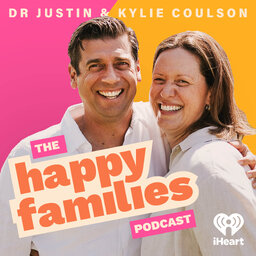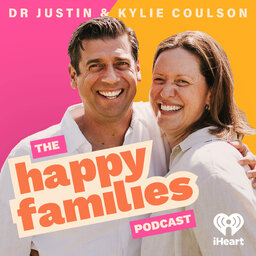#1172 - The 3-Step Solution to Better Emotional Regulation
Want to help your child manage big emotions? Start by understanding what emotional regulation really means. In this episode, we unpack why suppressing emotions isn't always bad, how regulation develops from age three onwards, and why parents might need to work on their own regulation first. Plus, discover three practical strategies that actually work—no more ineffective "just calm down" responses. Whether you're dealing with gaming meltdowns or homework frustrations, these solutions will transform how you handle emotional moments.
Quote of the Episode: "They don't need to be reprimanded. They need to be understanded."
Key Insights:
-
Emotional regulation means expressing or suppressing emotions appropriately for the context.
-
Self-regulation begins developing at age 3 and stabilises around age 9.
-
Parents often struggle with their own regulation while expecting it from their children.
-
Better regulation leads to improved academic performance, relationships, and life outcomes.
-
Supporting rather than solving builds autonomy, competence, and connection.
-
Context matters: hunger, tiredness, and stress all impact regulation ability.
-
The ability to process emotions is more important than suppressing them.
-
Breaking down overwhelming tasks helps prevent emotional flooding.
Resources Mentioned:
Action Steps for Parents:
-
Support, Don't Solve: Help children process emotions without fixing everything for them.
-
Offer Hints: Break down overwhelming tasks into manageable chunks.
-
Read the Room: Consider factors like hunger, tiredness, and stress before responding to dysregulation.
 Dr Justin Coulson's Happy Families
Dr Justin Coulson's Happy Families


